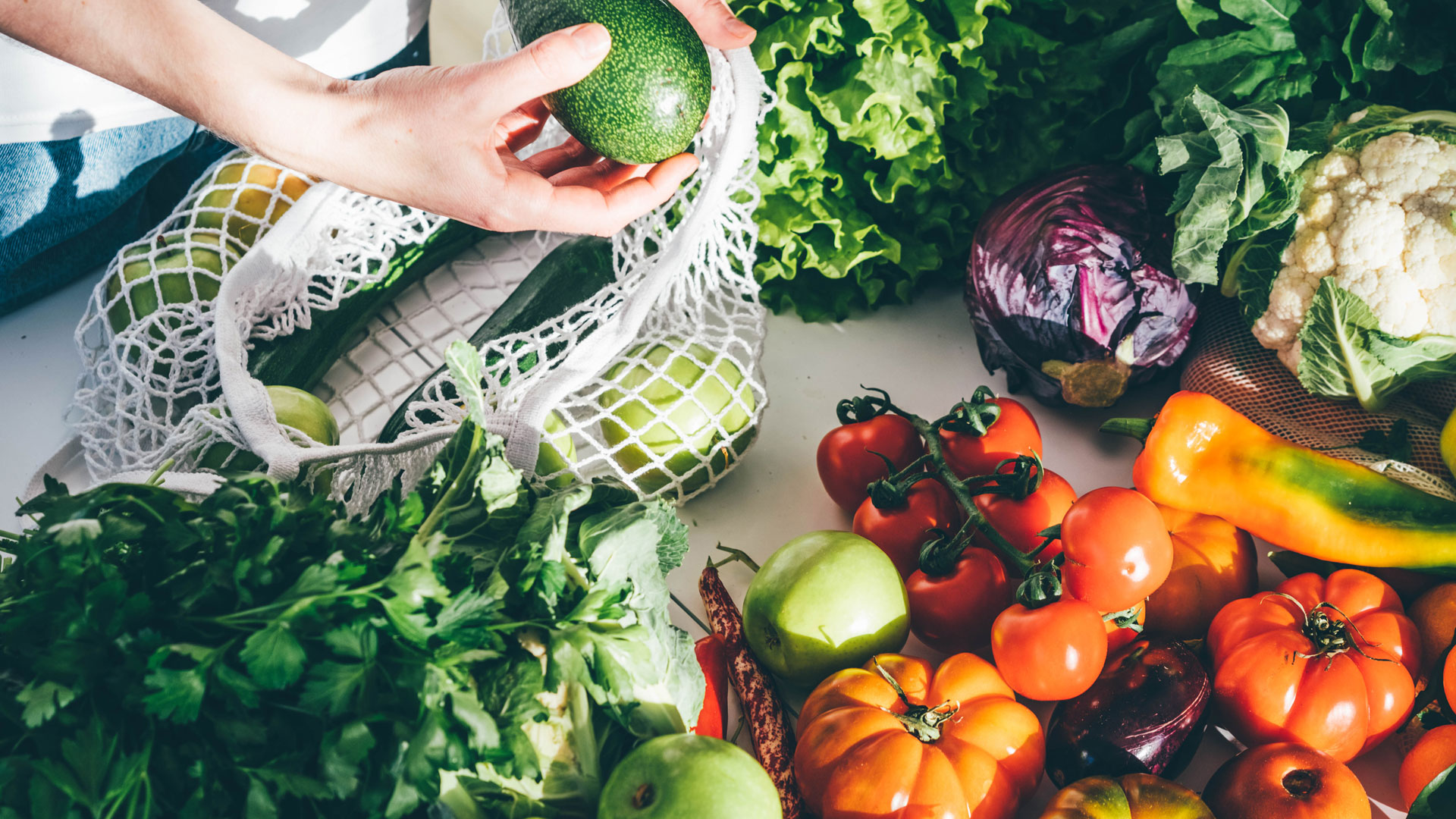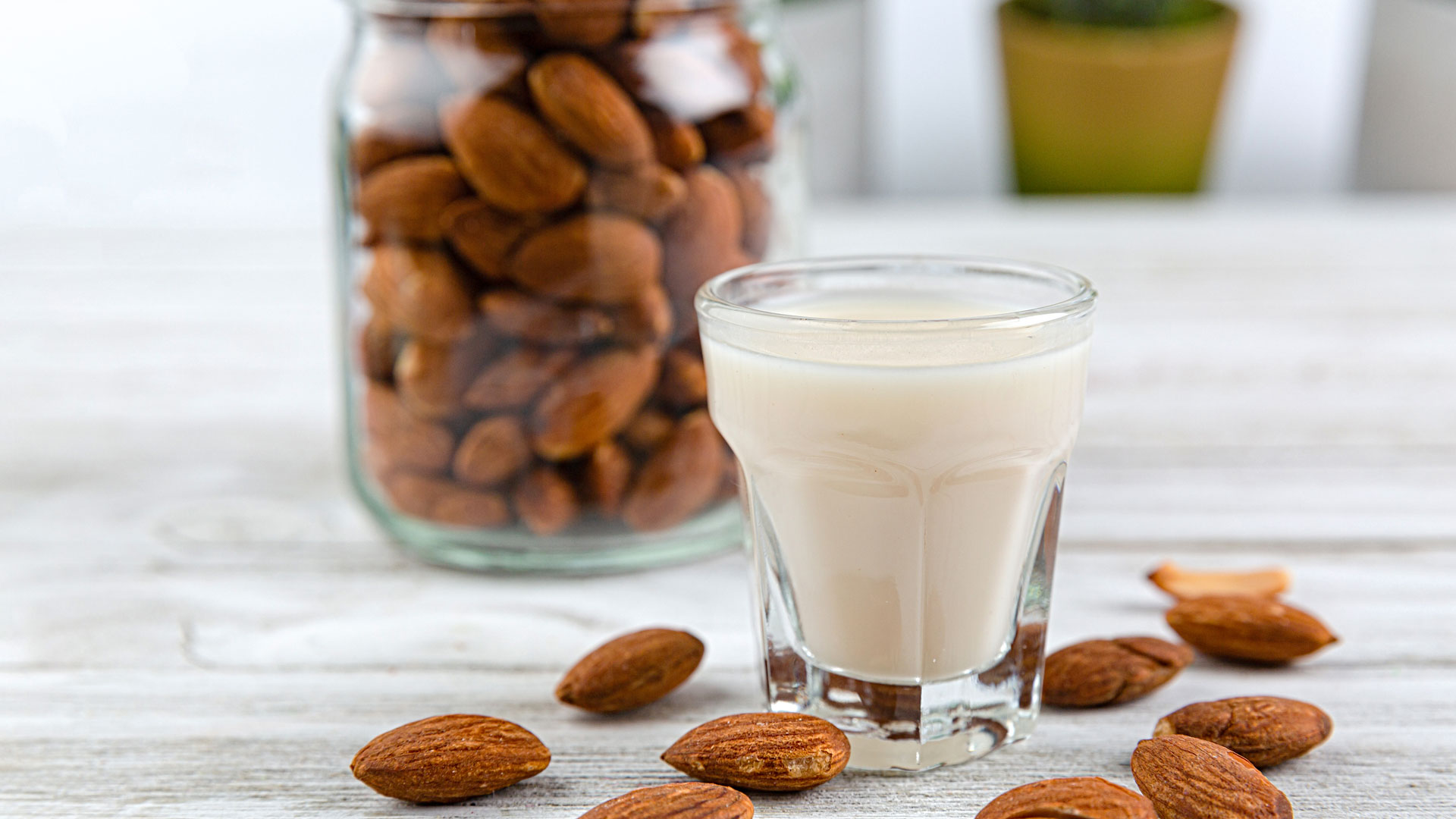Plant-based diet benefits
We look at the plant-based diet benefits, including what exactly is involved in plant-based eating

Find out all the plant-based diet benefits, and other factors to be aware of before switching up your diet here. Deciding to go vegan can be for a number of reasons; some for the element of sustainability, for health, or for the welfare of animals.
While some plant-based foods are processed, a well-balanced plant-based diet is based around whole foods, such as nuts and legumes, which are high in fiber and low in saturated fat.
If you want to go plant-based, but aren’t sure where to start, our guide to the best vegan cookbooks can help you find some tasty recipes to try out.
What is a plant-based diet?

The plant-based diet is built around plant foods, reducing any animal sources and replacing them with vegan alternatives where possible. Dr. Shireen Kassam, oncologist and co-author of Eating Plant-Based, told Fit&Well: “The term plant-based diet does not have a precise definition, but usually means a diet that is centered around minimally processed whole plant foods, i.e. fruit, vegetables, whole grains, beans, nuts, and seeds, whilst minimizing or avoiding processed foods and all animal-derived foods. The terms vegetarian and vegan diet come under this umbrella term.”
Dr. Tariq Mahmood, Medical Director at Concepto Diagnostics, explains some of the reasons people might want to be plant-based: “A plant-based diet is an alternative diet consisting of foods that don’t come from animals, and includes fruits, nuts, seeds, vegetables, whole grains and more,” he says. “For many, choosing a plant-based diet is a result of environmental concerns, animal welfare, or dietary restrictions, though it can just be a personal choice. Plant-based diets can take many different forms, such as flexitarians, pescatarians, and vegans. Flexitarians have a higher level of flexibility with their diets and may eat some dairy products, such as eggs, meat, poultry, and seafood on occasion, while pescatarians will incorporate fish and shellfish into their daily diet. Vegans, however, completely avoid all animal products - dairy products, eggs, honey, and the like.”
Plant-based diet benefits
Dr. Kevin Barrett, a GP at New Road Surgery, tells us that a plant-based diet can support healthy gut flora. “Increasing the variety of plant-based foods in our diets is the best way to improve the variety of the gut microbiome, which has been shown to be strongly associated with a reduced risk of diabetes, cardiovascular disease, and cancer,” he says. “A diet high in processed meat has the opposite effect on these risks, so the bigger the proportion of plant-based foods that we consume is a good thing. A plant-based diet can also produce a leaner body-mass, and can lead to better athletic performance.”
Another benefit of the plant-based diet is that it is typically low in saturated fat, which is a contributing factor to why vegans tend to have lower blood pressure overall. According to a review in Nutrients journal, a plant-based diet can reduce the risk of developing metabolic syndrome, which is a combination of diabetes, obesity, and high blood pressure. Another study in the Journal of Internal Medicine shows that reducing your consumption of red meat can help reduce your risk of cardiovascular disease and increase longevity, further supporting the benefits of a plant-based diet.
Get the Fit&Well Newsletter
Start your week with achievable workout ideas, health tips and wellbeing advice in your inbox.
Dr. Kassam tells us about some further health benefits of the plant-based diet. “Regarding personal health, a plant-based diet has been associated with some of the lowest rates of chronic illness, improved quality and quantity of life. Specific advantages include healthier body weight, lower risk of high blood pressure, high cholesterol, heart disease, stroke, dementia, type 2 diabetes, and certain cancers,” she says. “A plant-based diet is also beneficial for supporting optimal mental health and wellbeing. Plant-based diets are now accepted as an evidence-based approach for the treatment of a number of chronic conditions such as high blood pressure, cholesterol and for the remission of type 2 diabetes.”

Risks of a plant-based diet
A study in Nutrients journal found that those on a vegetarian or vegan diet are often deficient in vitamin B12 and may need to take a supplement to stay healthy. B12 is a nutrient we generally get from animal sources, as we can’t make it in our own bodies. The average adult needs 2.4 micrograms of vitamin B12 per day.
You must also be careful to ensure that you are getting enough iron and calcium, which are minerals that vegans are prone to be deficient in, due to the limited bioavailability of these minerals in plant-based sources. A study in the American Journal of Clinical Nutrition found that mineral deficiencies are of concern and that regularly consuming fortified foods can help to lower the risk of developing these deficiencies.
Dr. Kassam says that the risks associated with a plant-based diet are no more than with every other eating style and that everyone should be concerned about getting enough of each nutrient, not just those who eat plant-based. “There are no specific risks if a plant-based diet is planned well and you are meeting your nutrient requirements,” she says. “This applies to all diet patterns. When consuming a 100% plant-based diet and avoiding all animal foods, you need to obtain a regular and reliable source of vitamin B12. It is easiest to obtain vitamin B12 in a supplement form.”
For more nutrition content, find out which foods build muscle? Or, discover the benefits of B12.

Lou Mudge is a Health Writer at Future Plc, working across Fit&Well and Coach. She previously worked for Live Science, and regularly writes for Space.com and Pet's Radar. Based in Bath, UK, she has a passion for food, nutrition and health and is eager to demystify diet culture in order to make health and fitness accessible to everybody.
Multiple diagnoses in her early twenties sparked an interest in the gut-brain axis and the impact that diet and exercise can have on both physical and mental health. She was put on the FODMAP elimination diet during this time and learned to adapt recipes to fit these parameters, while retaining core flavors and textures, and now enjoys cooking for gut health.
-
 I do these two things every day to stay fit and healthy, says the newest star trainer on Chris Hemsworth's fitness app
I do these two things every day to stay fit and healthy, says the newest star trainer on Chris Hemsworth's fitness appHere's how Centr's Korey Rowe trains for longevity
By Sam Rider Published
-
 I thought sports weren't for me, until I realised they're a game-changer for ticking off cardio
I thought sports weren't for me, until I realised they're a game-changer for ticking off cardioI swapped HIIT and running for tennis—and I've never felt better
By Alice Porter Published